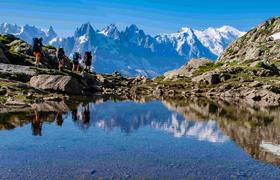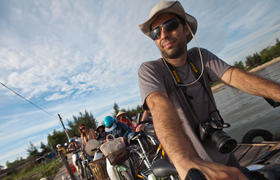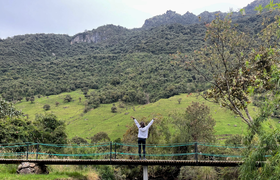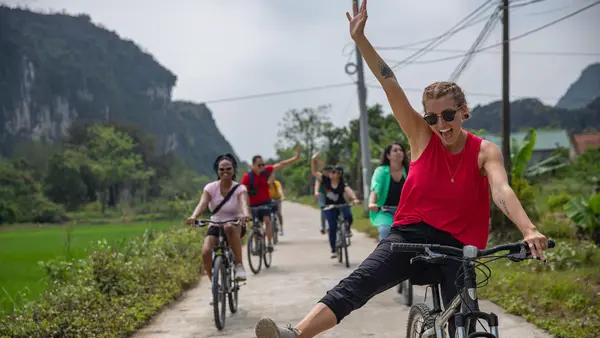
Sustainable travel tips to reduce your carbon footprint
From ethical wildlife encounters done right to eco-friendly hotel habits, these sustainable travel tips show you how to travel with care while still having fun
Travel is one of life’s greatest pleasures, whether getting gloriously lost in a new city or finding yourself on a hiking trail with views you can’t quite believe are real. With that privilege comes a greater responsibility to protect the planet. By lingering longer in fewer places, slow travel allows us to connect to our surroundings on a deeper level and means richer adventures for you and fairer outcomes for the communities you visit. Follow these practical tips to help you travel lighter, smarter, and more sustainably.
Low-impact choices before your tour
Responsible travel is shaped by the small decisions we make along the way — and even before we depart.
Pack lightly and thoughtfully
If your bag is heavier than you are, you’re doing it wrong. Every kilo counts, and lighter luggage means lower emissions on planes, trains, and automobiles. Plus, your own two feet will thank you. Think of the three Rs: reduce, reuse, and recycle. Swap bulky just-in-case items for versatile gear, such as refillable water bottles, reusable cutlery, and compact reusable bags.
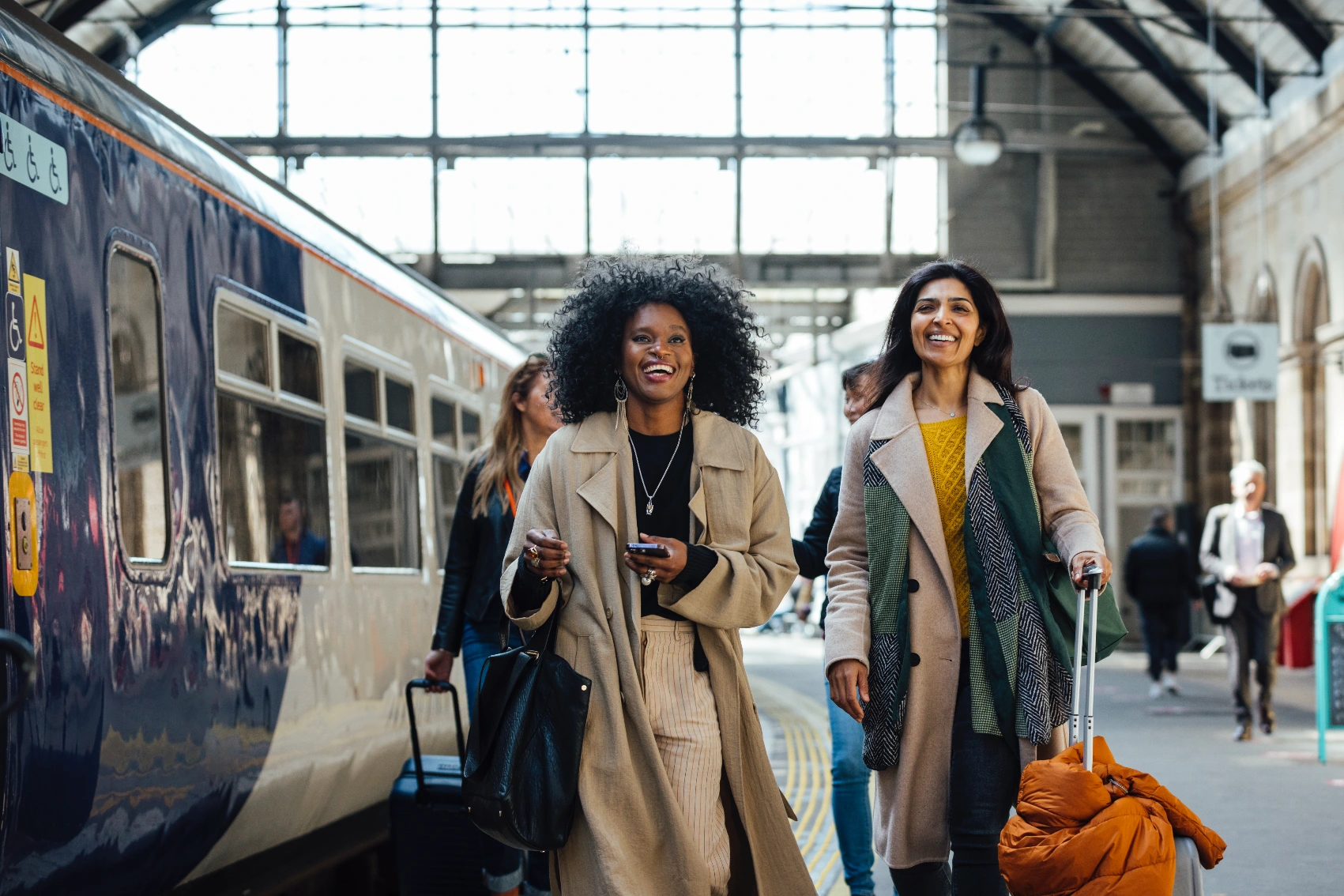
Choose your destination wisely
More than 1.4 billion people travel internationally each year, with some destinations feeling the pressure and negative effects of overtourism. Instead of heading to the same crowded hot spots, choose alternatives that you know are committed to sustainable tourism. You still get amazing experiences without overwhelming local communities.
Choose eco-friendly toiletries
Your soap shouldn’t outlive you. Solid shampoo bars, bamboo toothbrushes, and reef-safe sunscreen are eco-heroes in disguise. Ditching single-use plastics helps protect the ocean, where about 11 million tons of plastic waste leak in every year. Pack smart, and you’ll stay fresh while keeping the planet fresher.
Support responsible accommodations
When you book your accommodations, research their values and look for green certifications, renewable energy, or hotels with water-saving systems. A quick scan of a property’s sustainability policy (or a friendly email) ensures your money supports places that care for both their guests and their communities.

Getting there with low-impact travel
Choosing slow travel adds depth to every journey while keeping your footprint lighter.
Long-term travel over frequent short trips
Hopping on a plane every other weekend might be ticking off your bucket list, but it’s harming the planet. Choosing slow travel with one longer adventure instead of several short ones means fewer flights, less stress, and an opportunity to get to know the locals and experience real cultural immersion. If you do have to fly, take a direct flight to help reduce carbon emissions.
More ways to travel responsibly
Tourism accounts for 9% of global carbon emissions, so the way travellers explore new destinations makes a difference.
Choose low-carbon transport options
Getting from A to B is where most of your trip's carbon footprint comes from. Transport makes up about 70% of tourism’s carbon emissions. Train travel, buses, boats — or even better, cycling or walking — can slash that dramatically. Rail travel emits up to 80% less carbon dioxide than flying. Plus, you swap airport queues for window views, unexpected pitstops, and the joy of travelling with a clear conscience.

Travel by train on: China and South Korea: East Asia Adventure
Follow Leave No Trace principles
Travellers have an obligation to protect the fragile ecosystems of the natural world, which means considering the consequences of travel. Tourism can generate up to 4.8 million tons of solid waste each year, much of it preventable. By following the seven Leave No Trace principles, you help make sure those epic landscapes stay epic for everyone.
Respect wildlife and habitats
Capturing the perfect selfie is never worth stressing an animal or encroaching on its habitat. In the wild, keep your distance, avoid feeding, and visit sanctuaries that genuinely protect wildlife. Practice ethical travel and avoid exploitative wildlife attractions or activities involving animal cruelty. Choose viewing experiences that protect these beautiful creatures and contribute to their welfare. Animal welfare is important to G Adventures, and we work with several associations, including the Jane Goodall Institute, that are committed to the protection of wildlife. More than half of travellers say seeing wildlife is a trip highlight, so let’s keep wildlife wild.
Help protect wildlife on: Masai Mara & Gorilla Adventure
Support local and ethical choices
That fridge magnet from the tourist shop? Probably mass-produced. But buying a hand-woven scarf from a local artisan for a fair price is the right way to practice responsible tourism. Eating seasonal food and buying local crafts reduces food miles and puts money back into the community. Your souvenirs taste better and tell richer stories, too. Be especially careful not to buy any items that have been made from animal products. When it comes to purchasing your goods or paying for other travel expenses, consider paying for them with green credit cards, which contribute to carbon offset projects.
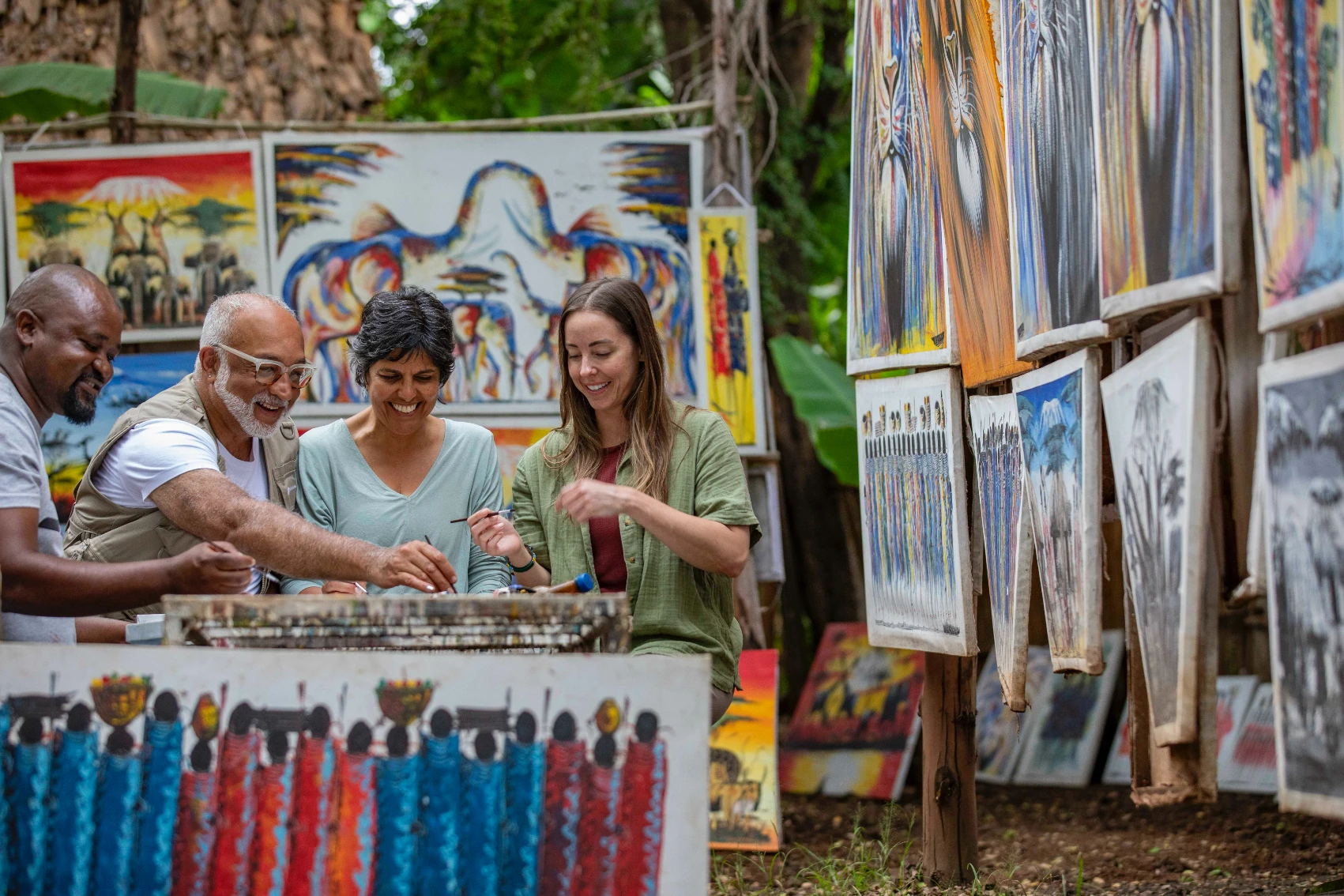
Respect local customs and cultures
Every destination comes with traditions that deserve respect. If you want to receive a warm welcome, dress appropriately, ask before taking photos, and follow local behaviour in sacred or cultural spaces. Don’t move objects or artifacts, or take something from nature. Practice mindful travel and stay present and respectful to fully appreciate the culture surrounding you.
Immerse yourself in culture on: Rajasthan & Varanasi — Ancient Temples & the Taj Mahal
Enjoy intentional travel beyond sightseeing
Seeing those cultural landmarks is an amazing experience, but the real magic often happens in everyday moments. Skip the checklist and embrace the vibe instead. Join a local cooking class, wander through a night market and savour the street food, or try a few phrases in the local language. These experiences are at the heart of experiential travel, where you learn by doing rather than just looking.
Conserve hotel resources
Reusing towels and turning off the air-conditioning might seem like small gestures, but hotels account for about 363 million tons of carbon dioxide per year. Make conscious travel a choice and skip daily laundry, avoid single-use plastics, and switch off the lights when you leave the room.
Just as important is where you stay. Choosing smaller guesthouses, family-run hotels, and homestays means your money stays in the local community, creating jobs and supporting families. You can check on your accommodation’s policy on sustainability before you book.
Live like a local on: Local Living Ecuador—Amazon Jungle
Champion conservation
Beach cleanup? Tree planting? Sign up! Even small contributions create ripples when travellers get involved. Joining a local initiative connects you with communities and ecosystems directly. Through Planeterra, G Adventures has integrated more than 100 community tourism experiences, called G for Good Moments, into our itineraries worldwide, ensuring tourism money stays with local families. Our G Expedition Ship raises money for the Ocean Health Fund, which supports marine wildlife projects.
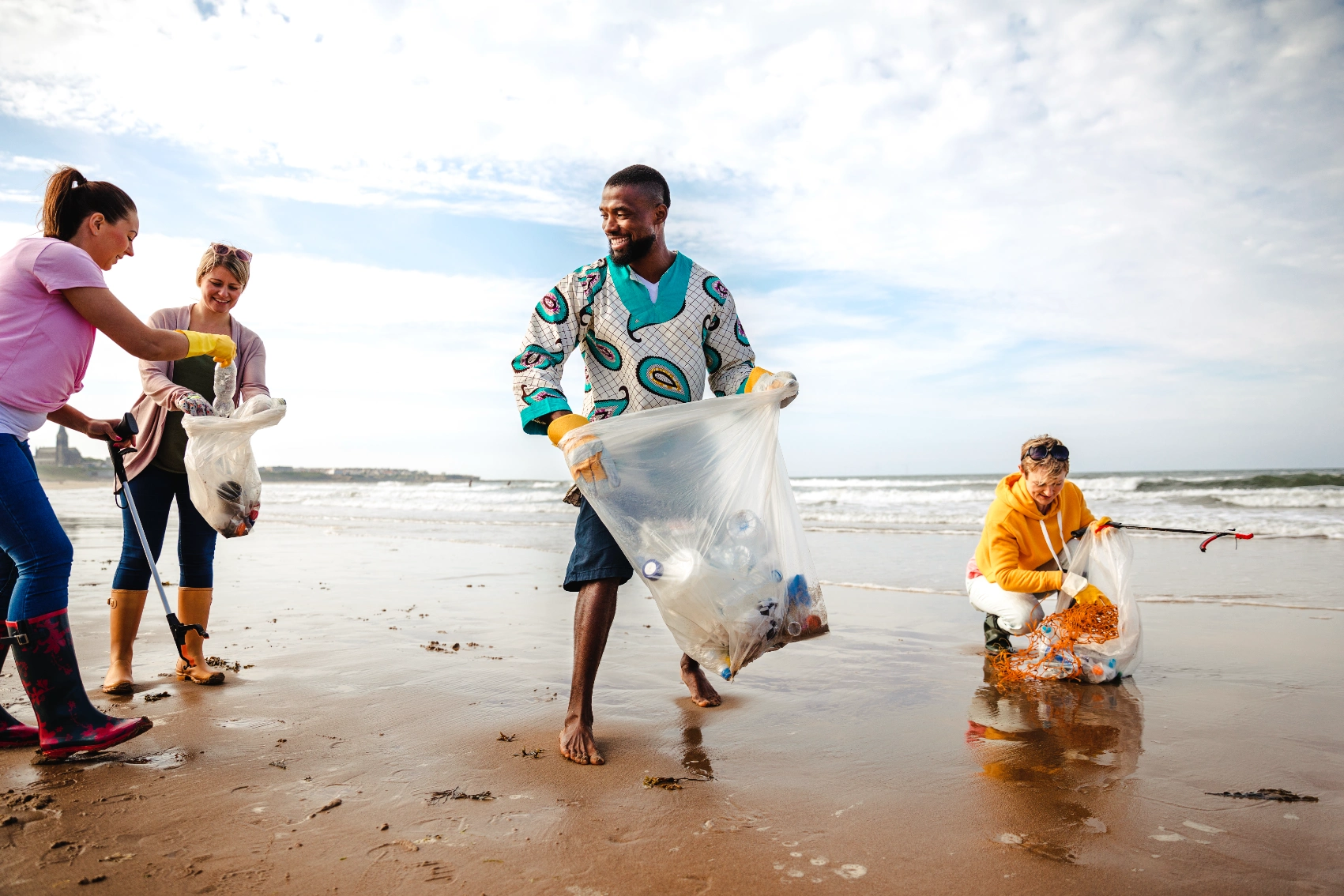
Support conservation projects on: Galápagos – West and Central Islands
Share sustainable travel habits
The choices you make on tour can influence the people travelling with you. When you refill a water bottle, carry a reusable shopping bag, or bring your own coffee cup on day trips, others are inspired to do the same. Join your group in eating at family-run restaurants, choose local markets over chain stores, and document your experiences. Set the standard by sharing tips on eco-friendly travel, and others will follow.
Build meaningful relationships
Travel is essentially about your interactions with people and places. Building connections with guides, artisans, and local families means you’re practicing community tourism, where your presence directly benefits locals, including groups often overlooked in mainstream tourism, such as Indigenous communities, women, and families. Your experiences result in friendships, fairer opportunities, and a better understanding of the culture.


